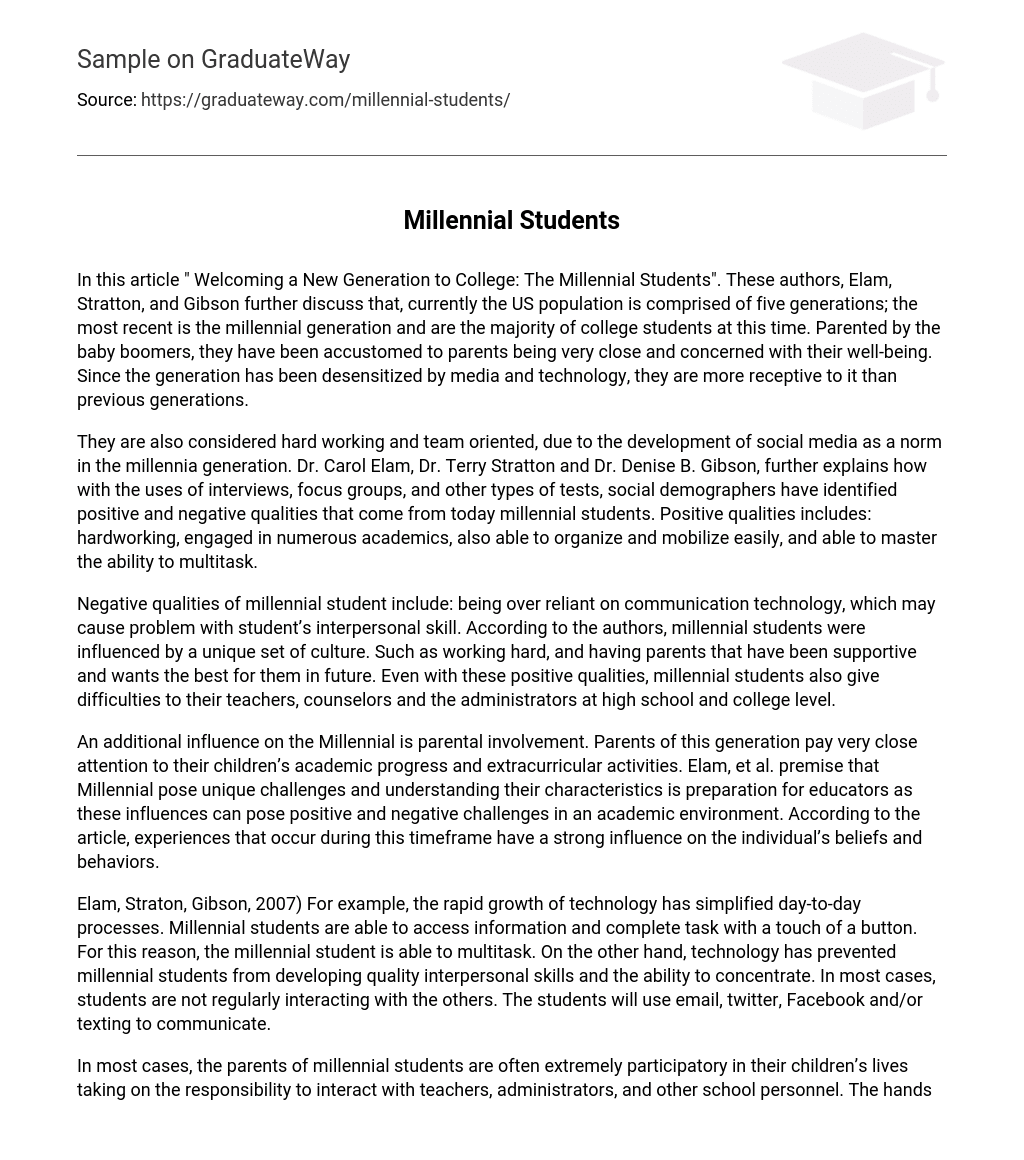The US population is currently made up of five generations. The newest generation is millennials, who are also the majority of college students. Millennials were raised by baby boomers and are used to having parents who are highly involved and caring. Their exposure to media and technology has made them more accepting of it than previous generations.
Based on the prevalence of social media, social demographers perceive millennials as hardworking and team-oriented. Dr. Carol Elam, Dr. Terry Stratton, and Dr. Denise B. Gibson have conducted interviews, focus groups, and other tests to identify positive and negative qualities among millennial students today. The researchers observed positive qualities including diligence in academics, active participation in activities, proficiency in organization and mobilization skills, as well as adeptness at multitasking.
According to the authors, millennial students exhibit negative traits such as an overreliance on communication technology, which can impact their interpersonal skills. Additionally, the authors acknowledge that millennial students are influenced by a unique cultural background characterized by a strong work ethic and supportive parents focused on their future success. However, despite these positive attributes, teachers, counselors, and administrators at high school and college levels still face challenges in dealing with millennial students.
The involvement of parents is another factor that influences Millennials. Parents of this generation closely monitor their children’s academics and extracurricular activities. Elam, et al. argue that understanding the characteristics of Millennials is important for educators, as these influences can have both positive and negative effects in an academic setting. The article emphasizes that experiences during this period have a significant impact on individuals’ beliefs and behaviors.
Elam, Straton, and Gibson (2007) state that technological advancements have simplified daily tasks for millennial students. They can effortlessly access information and accomplish tasks through touch screen devices. Consequently, these students possess the skill of multitasking. Nevertheless, technology has impeded the progression of their interpersonal abilities and concentration skills. Instead of engaging in frequent face-to-face interactions, students frequently depend on email, Twitter, Facebook, or texting as means of communication.
Millennial students often have parents who are highly involved and interact with teachers, administrators, and other school staff. However, this level of parental involvement can hinder the students’ ability to be proactive. The prevalence of technology and parental intervention may cause many millennial students to struggle with independent thinking. Additionally, the article discusses how millennial students are accustomed to structured schedules, teamwork, social networks, and organizing in a technology-driven environment.
The use of technology in education has led to the deficiency of communication and interpersonal skills among students, resulting in a decreased collective attention span. Millennial students lack the essential abilities to engage in introspection and self-reflection, which hinders their utilization of learning skills without excessive reliance on technology. The authors also highlight the influence of certain historical events that shaped the Millennial generation and emphasize the parental connection established by these events.
The article examines the positive qualities of the Millennia generation, including their capacity to manage multiple projects independently or collaboratively. However, they lack social skills and encounter difficulties in maintaining concentration. The article thoroughly analyzes the strengths and weaknesses of college students belonging to the Millennium generation. These students thrive in multitasking because of technological advancements but struggle with interpersonal abilities because communication methods that don’t necessitate face-to-face interaction are widespread.
Millennium college students, raised by baby boomers, are accustomed to parents who are highly involved and concerned about their well-being. Moreover, these students often lack social and interpersonal abilities while their parents excessively participate in their academic pursuits, adding further complexity. Additionally, due to constant exposure to media and technology, this generation is more accepting and receptive towards it when compared to previous generations.





